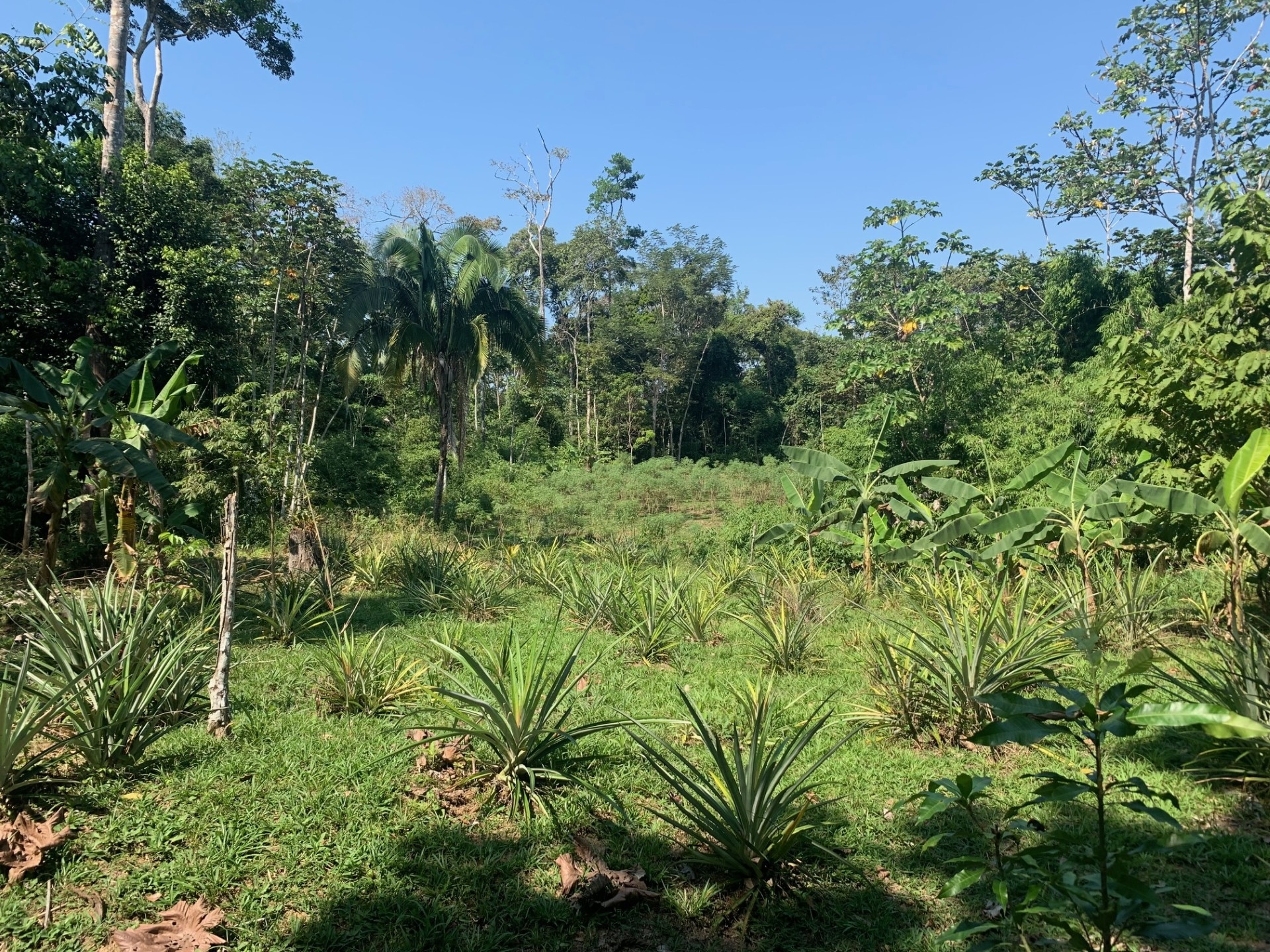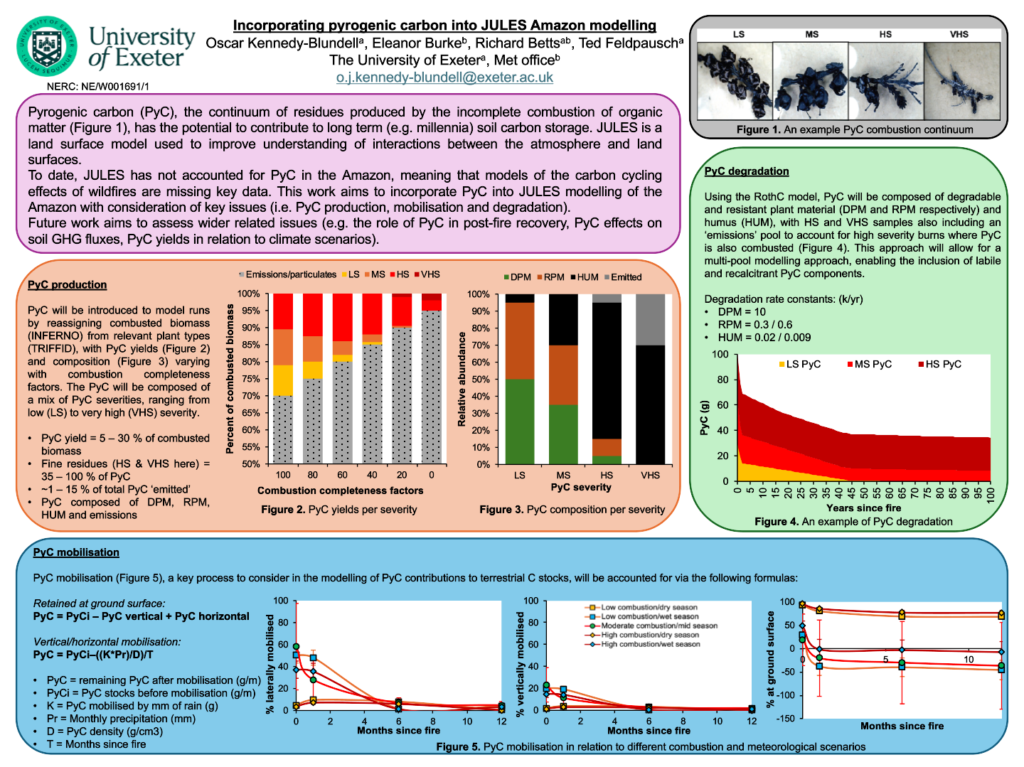
Posted by Ted Feldpausch
21 October 2025I am currently working as a postdoctoral research associate focusing on black carbon, or pyrogenic carbon (PyC), in the Amazon Basin. My primary focus is modelling the occurrence of PyC using the RothC model and the JULES land surface model.
Pyrogenic carbon represents the continuum of residues produced by the incomplete combustion of organic matter. It has the potential to contribute to soil carbon storage over long periods, such as millennia. However, the JULES model has not historically accounted for PyC in the Amazon. This means current models of carbon cycling effects regarding wildfires are missing specific data. My work aims to address this by incorporating PyC into JULES modelling, with consideration of production, mobilisation, and degradation. This work is part of the NERC-FAPESP Amazon PyroCarbon Project (T. Feldpausch and P. Camargo, UK and Brazil PIs).
To support this work, I recently traveled to Brazil to attend a workshop on biodiversity, conservation, and sustainable land-use at the Federal University of Acre (UFAC) in Rio Branco.

The goal of this meeting was to strengthen networks between researchers based in the UK and Brazil who study the Amazon rainforest. The schedule included a series of talks and breakout sessions that allowed us to discuss technical aspects of the research. We also visited several field sites in Acre. A notable part of the trip was an overnight excursion to Xapuri, which included a visit to an extractive reserve and the Chico Mendes house.

I have also been active in presenting the technical progress of this modelling work to the wider research community:
My presentations at these events examined both the RothC and JULES components of the research. Specifically, I discussed how PyC is composed of charred plant material in various forms that varies in rate of composition. We are using a multi-pool modelling approach to include different PyC components to better estimate emissions and storage.

We continue to assess related issues, such as the role of PyC in post-fire recovery and its effect on soil greenhouse gas fluxes relative to different climate scenarios. Ongoing fieldwork by the team continues the collection of data on soil respiration, microclimate, and changes soil carbon pools in burned forests.
Head photo credit: O. Kennedy-Blundell